The Creative Wire
LAUNCHing Student Dreams
and Pitching Creative Ideas
July 27, 2021 | by Mira Fu-En Huang
Edited by Christina Manceor
After the virtual fall semester at Peabody, the hybrid format of the spring semester was a dream come true. Thanks to rigorous testing and sanitization protocols to combat COVID-19, instrumentalists played in person, conductors practiced with live ensembles, performances boasted limited audiences, and more. These dreams did not come without their prices; personal protective equipment made performances far from easy, and much of the semester remained online. Still, optimism soared and dreams came true, even on the virtual side of school.
Dreams became particularly possible to grasp in the class, Pitching Your Creative Idea. In this semester-long course, undergraduates and graduates alike learned to craft grant proposals; that is, to pitch a project for an outside party to fund. Class participants were encouraged to submit their grant proposals for the Launch Grant, an up-to $5,000 award offered by Peabody LAUNCHPad. Pitching provided practice with real stakes and the opportunity to make a dream come true.
Five students—four undergraduates and one graduate—were awarded up to $5,000 each through the Launch Grant in May. From online resources to a gallery show, the winning project proposals provided an inspirational array of ideas. They also shed light upon the various hurdles that grant proposals face, especially in the hybrid environment of early 2021.
First, the inevitable question arises: what about COVID-19? In an optimistic twist, undergraduate Voice and Music Education student Kaijeh Johnson said that COVID-19 impacted his project proposal positively.
“One of the Launch Grant requirements was to be able to execute our projects in the upcoming year, and with COVID-19, and I had no idea what the next year would bring,” he explained. “My focus then became centered around virtual and online learning because ‘the internet is forever.’ I knew that with a virtual platform, [I could make] a useful resource no matter what the year looked like.”
Kaijeh’s project, Second Movement, proposes a free, educational website containing videos and master classes that are geared toward Black students pursuing musical careers. With its online formatting inspired by COVID-19, the project could make a lasting impact on the educational landscape for aspiring Black musicians.
Kaijeh Johnson, BM 2022
Voice (Baritone)
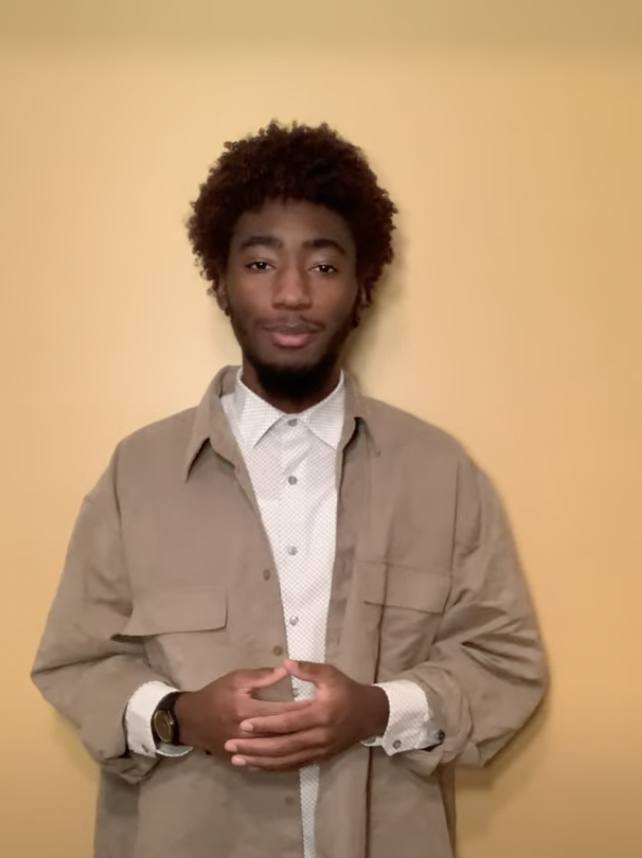
————
As another winner of the Launch Grant, I also found that COVID-19 had a positive impact on my proposal, albeit in a different way. My project, Story to Song, proposes a web series in which each episode pairs a fairytale with a song and unpacks the cultural, historical, and thematic intersections. The song recordings present a daunting hurdle to overcome, as they require musicians who are comfortable with playing music from numerous countries and time periods. However, thanks to music continuing in the face of the pandemic, many musicians now own and are experienced in using recording equipment. With my collaborators already in mind, my proposal neither had to budget for a recording venue nor select musical collaborators local to the area. This kept my budget just under $5,000 while keeping my options for recording music nearly limitless.
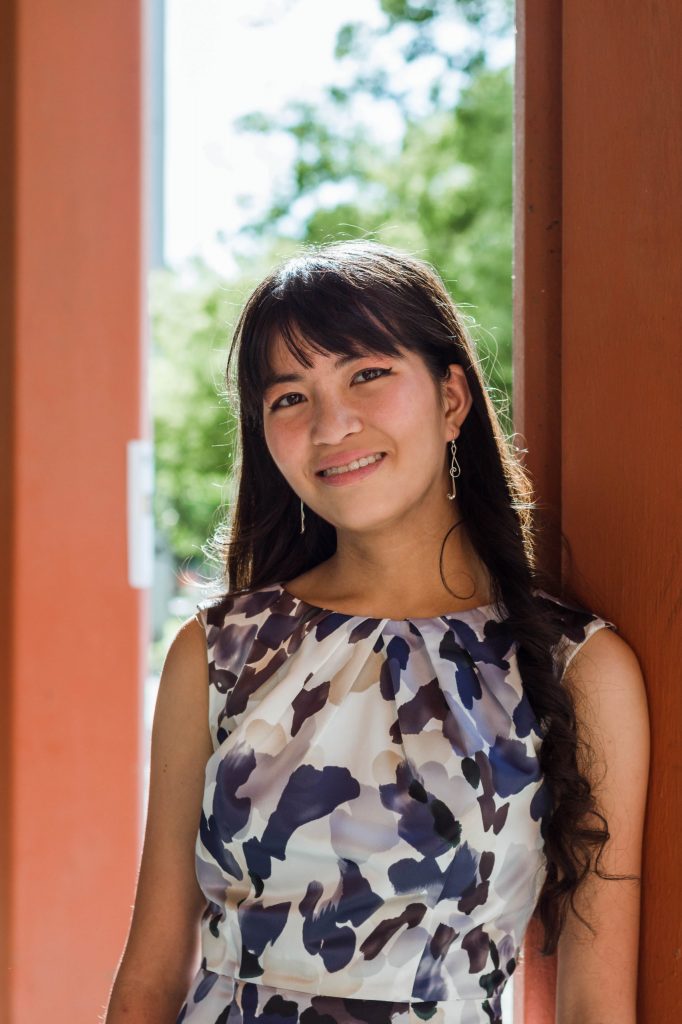
Mira Fu-En Huang, MM 2022
Historical Voice Performance
————
That said, not every winner of the Launch Grant presented a budget shy of $5,000. Jolene Shao, an undergraduate student of Music for New Media, proposed a budget of more than twice the Launch Grant’s amount for her project, Digitalizing “Along the River During the Qingming Festival.” This project, which seeks to make an immersive VR experience from the classic Chinese artwork, “Along the River During the Qingming Festival (Suzhou Ben),” requires its budget to deliver a suitably polished product. For Jolene, this risk was worth the opportunity.
“I just really had to show my absolute passion for digitizing this painting, so that the panelists knew […] I’d be willing to devote lots of time and effort into the development of this immersive experience,” she remarked. “$5,000 might not cover the entire expense, but just like the name ‘Launch Grant’ suggests, it is indeed an essential fund to get me started on this project.”
Jolene Shao, BM 2022
Music for New Media
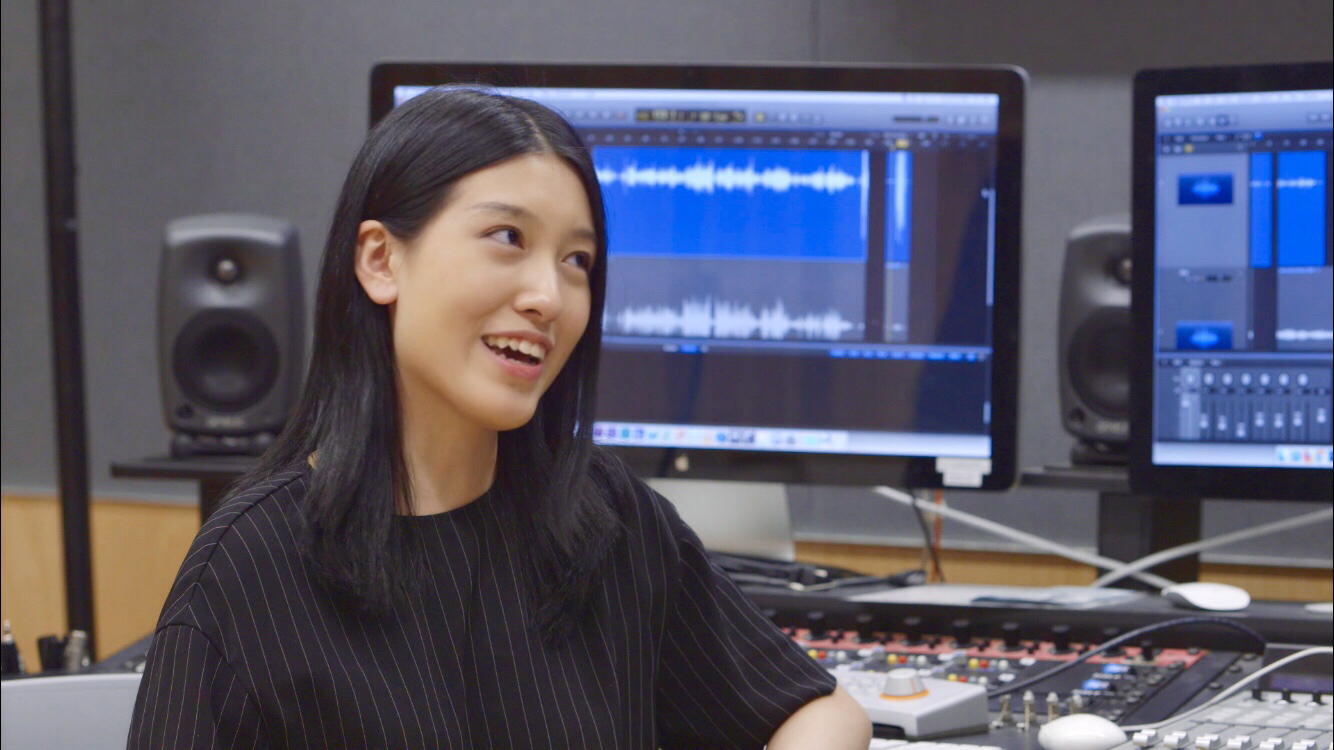
————
Jolene was not the only winner to propose a large budget—Rush Johnston, an undergraduate Dance student, did the same, and for an in-person endeavor no less. Their project, Making a Mess, proposes a gallery show in Baltimore that subverts the common expectations around concert dance to question the systems in which ‘fine art’ exists. With personnel to pay, a venue to rent, sets to construct, and more, the project is nothing short of enormous, which Rush is quite aware of.
“It was definitely nerve-wracking to propose a project about $3,000 over the maximum grant amount!” they said. “I was fearful that the panel would be worried about trusting me to raise the rest of the funding I needed. [… But] I knew this was a project I wanted to produce regardless of if I won the Launch Grant or not, so I knew I was committed to finding funding regardless. […] Further, I had already raised $1,800 towards the grants so I knew [the Launch Grant would] bring me closer to my desired budget.”
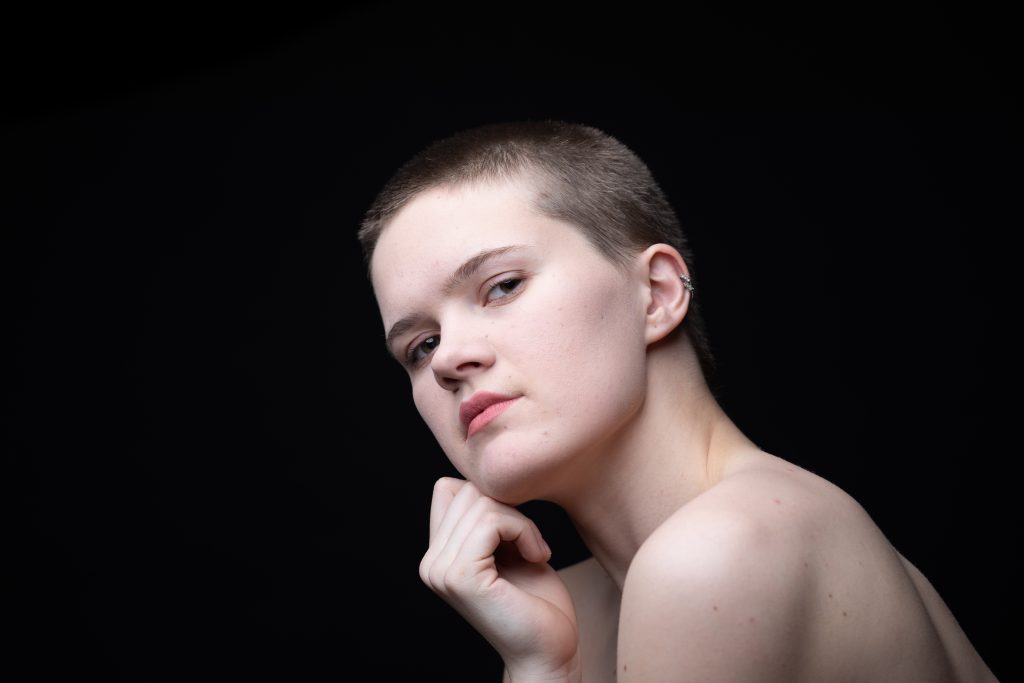
Rush Johnston, BM 2022
Dance
————
One other student pitched an in-person project for the Launch Grant, and that was undergraduate Voice student Maddalena Ohrbach. Her project, Prison Pipes, aims to teach singing workshops in Baltimore prisons with help from Prison to Professionals (P2P), a local nonprofit organization. Despite the interest that her proposal inevitably incited in the panelists, Maddalena felt extremely nervous about it.
“I didn’t feel confident in my proposal at all!” she said. “When I pressed ‘Submit,’ I was overwhelmed by a feeling of imposter syndrome and thought my proposal wouldn’t be taken seriously […], especially given all the uncertainty with COVID. But I approached it as a learning opportunity either way and I’m so grateful for the faith LAUNCHPad is putting into my project!”
Maddalena Ohrbach, BM 2022
Voice (Mezzo Soprano)
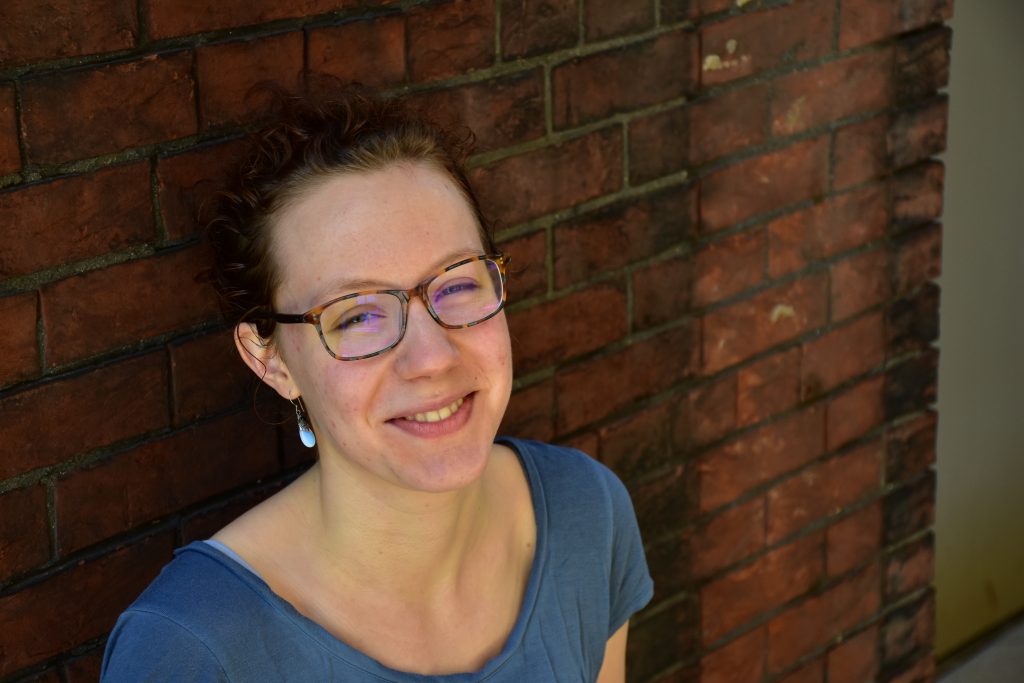
————
From virtual to in-person and large- to small-budgeted, this year’s winning projects provide a spectrum of ideas and logistics. Still, none of them would come to life in the way they have without Pitching as a class itself. Rush described the class’s curriculum itself as beneficial. “Pitching was super helpful in providing me a timeline and clear expectations,” they explained. “[…] I appreciated the pacing of the course because it made the final deadline a lot less daunting.”
Kaijeh expressed a similar sentiment, saying the class was able to fully prepare him for the Launch Grant. “Once it was time to submit an official proposal, it was as easy as pressing the ‘Submit’ button.”
Jolene acknowledged the assistance that Pitching provided through its pacing and timeline, but also highlighted the class’s interpersonal benefits. “I was able to get constant feedback from my section instructor and fellow classmates,” she said. “Knowing what people thought of my idea before actually submitting the entire proposal was handy for sure.”
Having attempted grant proposals independently before, my own experience with the class aligns most with Maddalena’s comment:
“Last year, pre-COVID and before taking Pitching, I wrote a grant proposal for an interdisciplinary project by myself,” she said. “[…] Looking back, that process was comical—I was madly calling organizations and writing emails while in lunch lines and stairwells between classes. When I enrolled in Pitching, I wondered whether I’d learn anything that I hadn’t already figured out by trial and error, but to my surprise, [the] course strengthened my existing skills and opened me to all the new skills I didn’t know I’d need.”
Pitching is a part of Peabody’s Breakthrough Curriculum, designed to help students forge professional careers. And indeed, both Pitching and the Launch Grant are helping students break through barriers and make their dream projects come true.
Follow @peabodylaunchpad on Instagram to learn more about the Launch Grant winners and see how their projects continue to develop.
——————————————————————————————————————-

Mira Fu-En Huang
Historical Voice Performance
MM 2022

Mira Fu-En Huang, soprano, is an early and modern music specialist with a passion for underperformed repertoire. Hailing from the west coast, she received undergraduate degrees with honors in Music, Psychology, and English from the University of California, Davis.